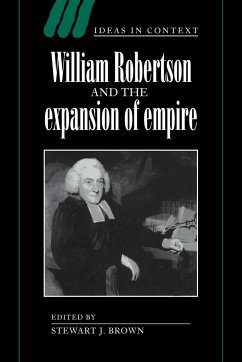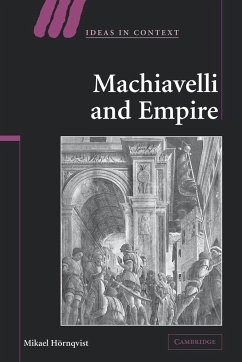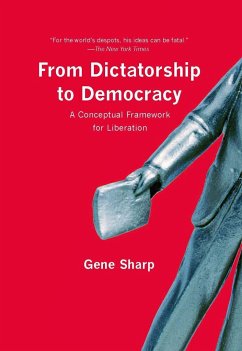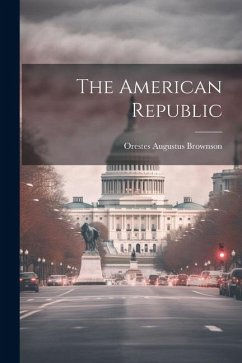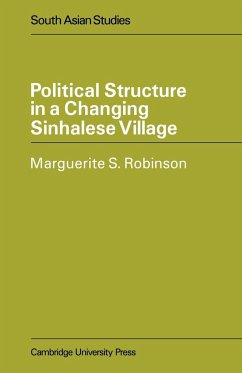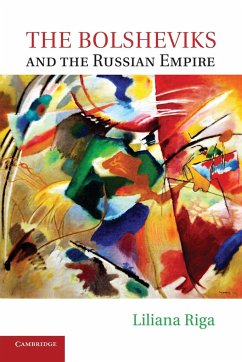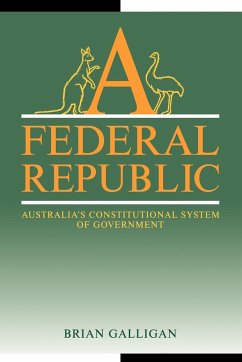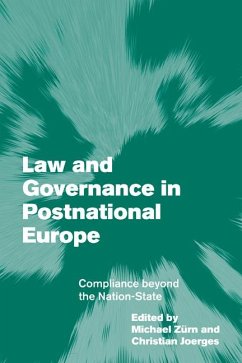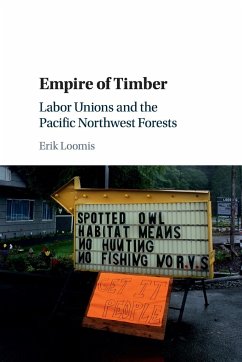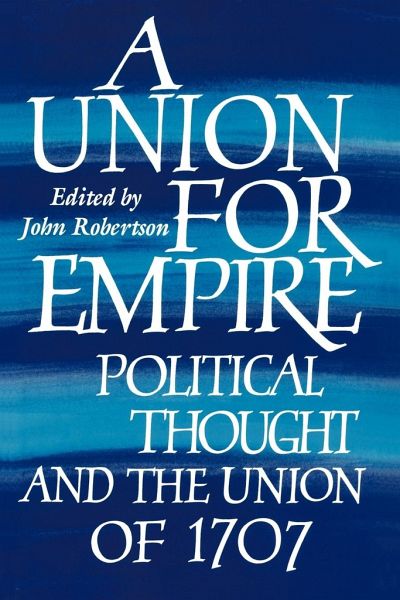
A Union for Empire
Political Thought and the British Union of 1707
Herausgeber: Robertson, John

PAYBACK Punkte
24 °P sammeln!
Essays by leading historians which explore the political significance of the Anglo-Scottish Union of 1707.This volume of essays explores the intellectual context of the Anglo-Scottish Union of 1707. Challenging the received view of the Union as a simple political job, it argues instead that the Union was a landmark in the history of political thought. It investigates the ideas of union, universal monarchy and empire current in Europe and Britain before 1707, focuses on the issues of sovereignty at the centre of the Union debate itself and concludes by studying the aftermath of the debate in ei...
Essays by leading historians which explore the political significance of the Anglo-Scottish Union of 1707.
This volume of essays explores the intellectual context of the Anglo-Scottish Union of 1707. Challenging the received view of the Union as a simple political job, it argues instead that the Union was a landmark in the history of political thought. It investigates the ideas of union, universal monarchy and empire current in Europe and Britain before 1707, focuses on the issues of sovereignty at the centre of the Union debate itself and concludes by studying the aftermath of the debate in eighteenth-century discussions of Britain's relations to Ireland and the North American Colonies. Underlining the vitality of Scottish intellectual life before the Enlightenment, the volume also gives unprecedented attention to the English view of the Union, to its European setting and to its consequences for the subsequent understanding of the British Empire.
Review quote:
"This is an important collection of essays, and one which should be read by every serious student of the Union and its consequences. Its appeal should be wider than that, and deservedly so, as it adds yet another contribution to the study of Scottish history in what is properly its British, European, and Atlantic context."
Christopher Whatley, Books in Review
"It is a useful collection, worth having if only for Pocock's splendid concluding piece, which is worth a review all by itself."
Scotia
"...a fine collection..."
Brian P. Levack, Albion
"A Union for Empire offers a wealth of fine full generalizations on a wide range of subjects related to a major historical event. All of the articles are thoroughly researched and present well-considered these."
Warren M. Elofson, Journal of Modern History
Table of contents:
Notes on contributors; Preface; Part I. Unions, Universal Monarchy and Empire: 1. Empire and union: two concepts of the early modern European political order John Robertson; 2. The English debate over universal monarchy Steven Pincus; 3. Power, commerce and natural law in Daniel Defoe's political writings 1698-1707 Laurence Dickey; 4. The Scottish vision of empire: intellectual origins of the Darien venture David Armitage; Part II. The Scottish Setting: 5. Scottish cultural change 1660-1710 and the Union of 1707 Roger L. Emerson; 6. Religious realignment between the Restoration and Union Colin Kidd; Part III. The Issues of Sovereignty: 7. Protestant theologies, limited sovereignties: natural law and conditions of union in the German Empire, the Netherlands and Great Britain James Moore and Michael Silverthorne; 8. An elusive sovereignty. The course of the Union debate in Scotland 1698-1707 John Robertson; 9. From 'Revolution principles' to Union: Daniel Defoe's intervention in the Scottish debate Katherine R. Penovich; 10. Scottish Law, Scottish lawyers and the status of the Union John W. Cairns; Part IV. Union and Empire in the Eighteenth-Century British World: 11. Ireland without Union: Molyneux and his legacy Jacqueline Hill; 12. The legacy of British Union for the North American colonies: provincial elites and the problem of Imperial Union Ned Landsman; 13. Empire, state and confederation: the War of American Independence as a crisis in multiple monarchy J. G. A. Pocock; Index.
This volume of essays explores the intellectual context of the Anglo-Scottish Union of 1707. Challenging the received view of the Union as a simple political job, it argues instead that the Union was a landmark in the history of political thought. It investigates the ideas of union, universal monarchy and empire current in Europe and Britain before 1707, focuses on the issues of sovereignty at the centre of the Union debate itself and concludes by studying the aftermath of the debate in eighteenth-century discussions of Britain's relations to Ireland and the North American Colonies. Underlining the vitality of Scottish intellectual life before the Enlightenment, the volume also gives unprecedented attention to the English view of the Union, to its European setting and to its consequences for the subsequent understanding of the British Empire.
Review quote:
"This is an important collection of essays, and one which should be read by every serious student of the Union and its consequences. Its appeal should be wider than that, and deservedly so, as it adds yet another contribution to the study of Scottish history in what is properly its British, European, and Atlantic context."
Christopher Whatley, Books in Review
"It is a useful collection, worth having if only for Pocock's splendid concluding piece, which is worth a review all by itself."
Scotia
"...a fine collection..."
Brian P. Levack, Albion
"A Union for Empire offers a wealth of fine full generalizations on a wide range of subjects related to a major historical event. All of the articles are thoroughly researched and present well-considered these."
Warren M. Elofson, Journal of Modern History
Table of contents:
Notes on contributors; Preface; Part I. Unions, Universal Monarchy and Empire: 1. Empire and union: two concepts of the early modern European political order John Robertson; 2. The English debate over universal monarchy Steven Pincus; 3. Power, commerce and natural law in Daniel Defoe's political writings 1698-1707 Laurence Dickey; 4. The Scottish vision of empire: intellectual origins of the Darien venture David Armitage; Part II. The Scottish Setting: 5. Scottish cultural change 1660-1710 and the Union of 1707 Roger L. Emerson; 6. Religious realignment between the Restoration and Union Colin Kidd; Part III. The Issues of Sovereignty: 7. Protestant theologies, limited sovereignties: natural law and conditions of union in the German Empire, the Netherlands and Great Britain James Moore and Michael Silverthorne; 8. An elusive sovereignty. The course of the Union debate in Scotland 1698-1707 John Robertson; 9. From 'Revolution principles' to Union: Daniel Defoe's intervention in the Scottish debate Katherine R. Penovich; 10. Scottish Law, Scottish lawyers and the status of the Union John W. Cairns; Part IV. Union and Empire in the Eighteenth-Century British World: 11. Ireland without Union: Molyneux and his legacy Jacqueline Hill; 12. The legacy of British Union for the North American colonies: provincial elites and the problem of Imperial Union Ned Landsman; 13. Empire, state and confederation: the War of American Independence as a crisis in multiple monarchy J. G. A. Pocock; Index.





